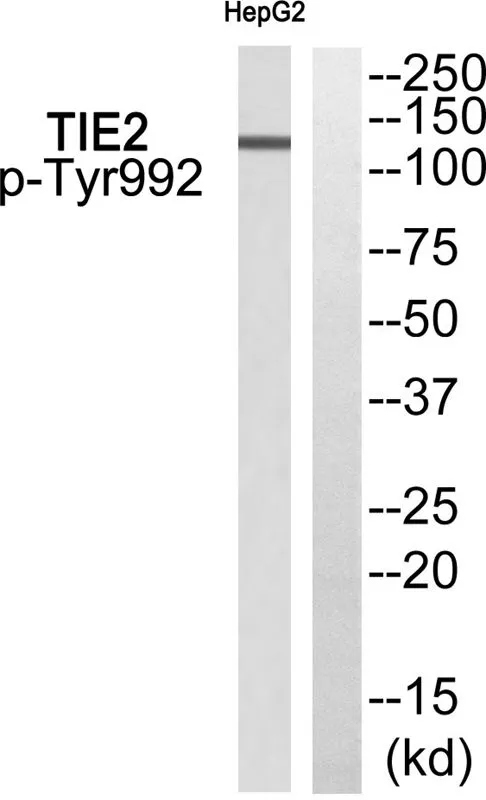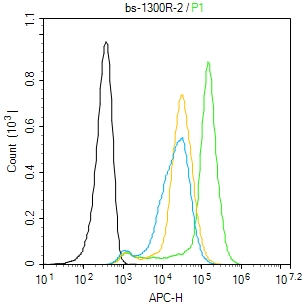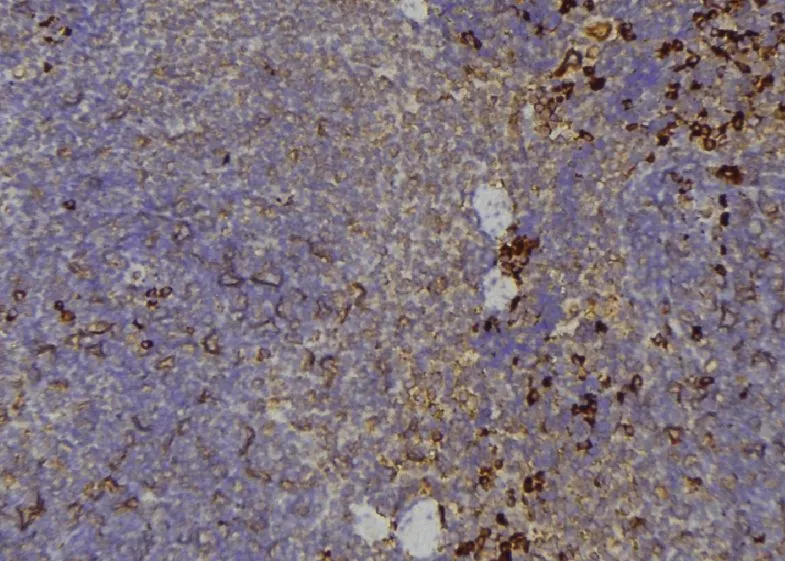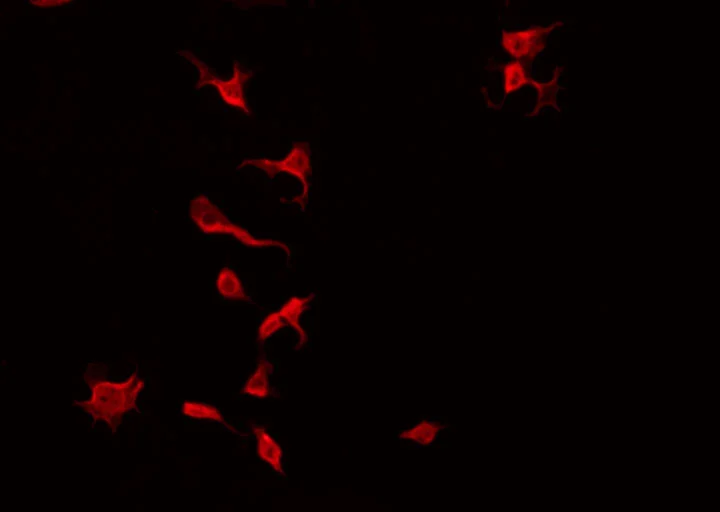
ICC/IF analysis of PFA-fixed NIH-3T3 cells using GTX00793 TIE2 (Phospho-Ser1119) antibody. Red : Primary antibody Permeabilization : 0.1% Triton X-100 Dilution : 1:200
TIE2 (phospho Ser1119) antibody
GTX00793
ApplicationsImmunoFluorescence, Western Blot, ELISA, ImmunoCytoChemistry
Product group Antibodies
ReactivityHuman, Mouse
TargetTEK
Overview
- SupplierGeneTex
- Product NameTIE2 (phospho Ser1119) antibody
- Delivery Days Customer9
- Application Supplier NoteWB: 1:1000-1:3000. ICC/IF: 1:100-1:500. *Optimal dilutions/concentrations should be determined by the researcher.Not tested in other applications.
- ApplicationsImmunoFluorescence, Western Blot, ELISA, ImmunoCytoChemistry
- CertificationResearch Use Only
- ClonalityPolyclonal
- Concentration1 mg/ml
- ConjugateUnconjugated
- Gene ID7010
- Target nameTEK
- Target descriptionTEK receptor tyrosine kinase
- Target synonymsCD202B, GLC3E, TIE-2, TIE2, VMCM, VMCM1, angiopoietin-1 receptor, TEK tyrosine kinase, endothelial, endothelial tyrosine kinase, tunica interna endothelial cell kinase, tyrosine kinase with Ig and EGF homology domains-2, tyrosine-protein kinase receptor TEK, tyrosine-protein kinase receptor TIE-2
- HostRabbit
- IsotypeIgG
- Protein IDQ02763
- Protein NameAngiopoietin-1 receptor
- Scientific DescriptionThis gene encodes a receptor that belongs to the protein tyrosine kinase Tie2 family. The encoded protein possesses a unique extracellular region that contains two immunoglobulin-like domains, three epidermal growth factor (EGF)-like domains and three fibronectin type III repeats. The ligand angiopoietin-1 binds to this receptor and mediates a signaling pathway that functions in embryonic vascular development. Mutations in this gene are associated with inherited venous malformations of the skin and mucous membranes. Alternative splicing results in multiple transcript variants. Additional alternatively spliced transcript variants of this gene have been described, but their full-length nature is not known. [provided by RefSeq, Feb 2014]
- ReactivityHuman, Mouse
- Storage Instruction-20°C or -80°C,2°C to 8°C
- UNSPSC41116161

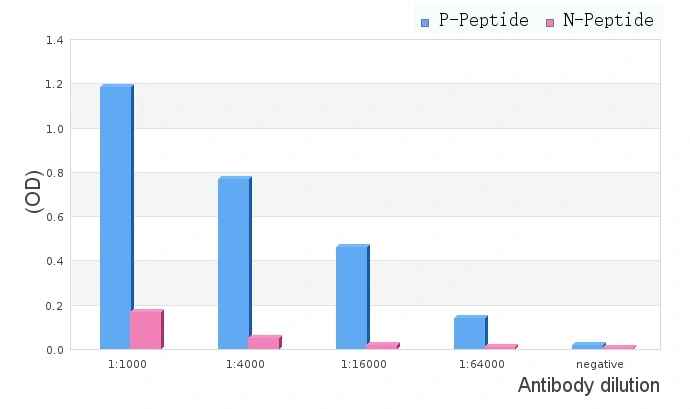
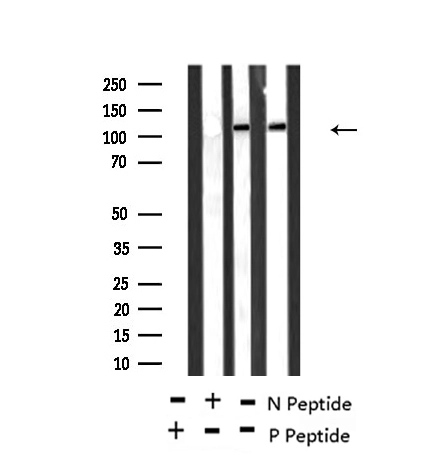



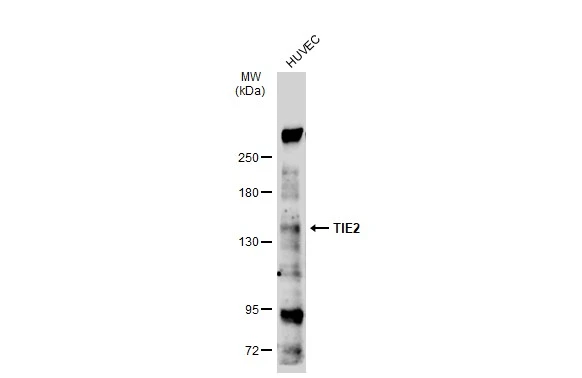
![IHC-P analysis of formalin fixed human placenta tissue using GTX52471 TIE2 antibody [21G7].](https://www.genetex.com/upload/website/prouct_img/normal/GTX52471/GTX52471_20191119_IHC-P_w_23060900_106.webp)
